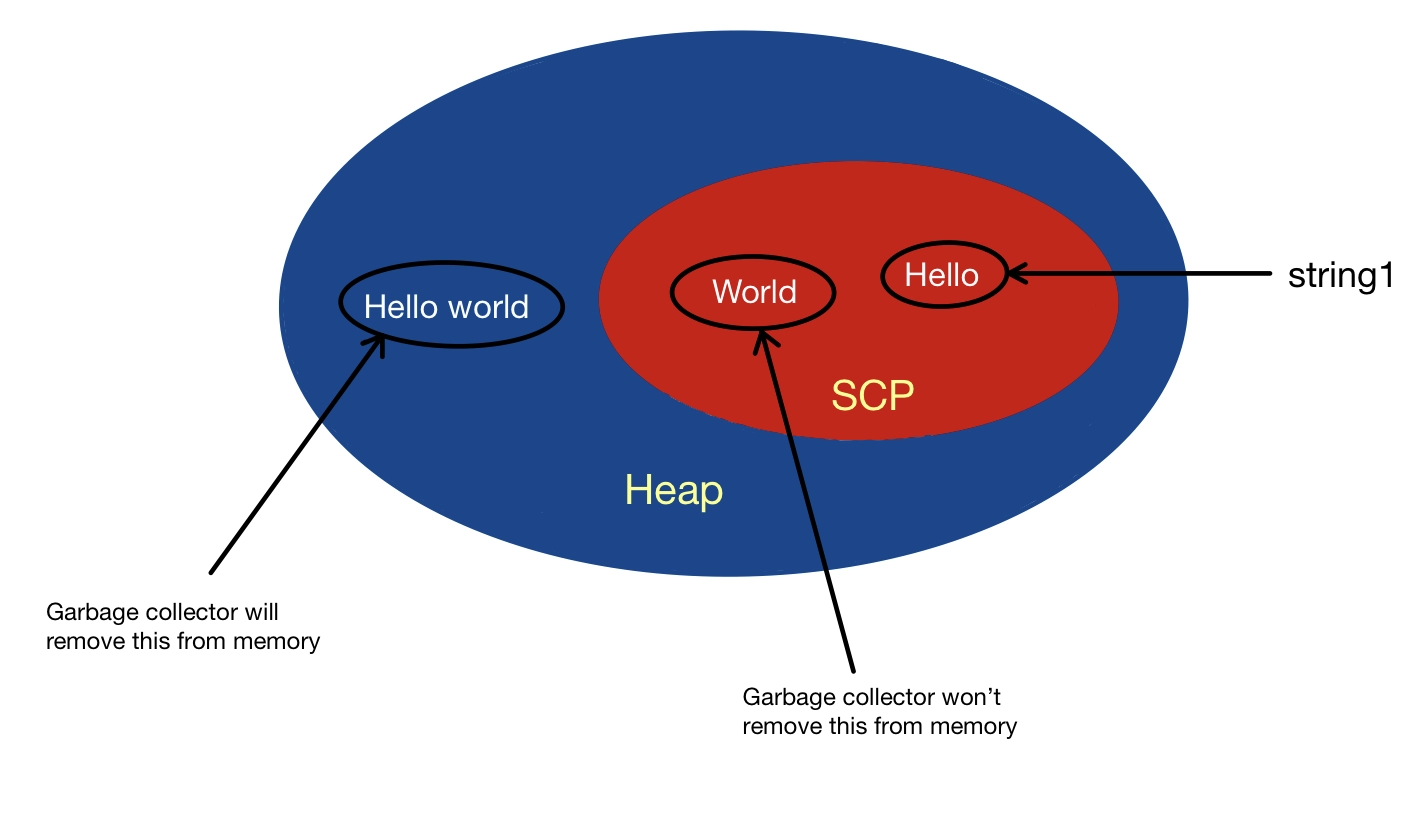Why Are Strings Immutable in Java? Enhancing Code Dependability
Wiki Article
What Is Unalterable Strings and Just How It Works
In the realm of shows, understanding the principle of unalterable strings is vital for producing protected and robust applications. Unalterable strings describe strings that can not be changed after they are produced, ensuring information honesty and predictability within the code. This basic principle plays an important duty in different programming languages and provides an one-of-a-kind method to handling data. By exploring the complexities of how immutable strings function, one can uncover a globe of advantages and possibilities that can elevate the quality and effectiveness of software application development.The Essentials of Unalterable Strings
Immutable strings, as a basic principle in shows, are personality series that can not be transformed once they are created. This means that as soon as a string is appointed a value, that worth can not be altered. In languages like Python and Java, strings are immutable things, causing numerous implications in terms of memory administration and data honesty.One of the vital advantages of unalterable strings is that they offer a feeling of safety and security in data control. Since the content of an immutable string can not be changed, it guarantees that the initial data stays undamaged, minimizing the danger of unintentional changes throughout program implementation (Why are strings immutable in Java?). This residential property additionally simplifies debugging procedures, as programmers can trust that as soon as a string is defined, its worth will not be inadvertently modified
Moreover, unalterable strings assist in efficient memory usage. When a brand-new string is created based on an existing one, instead of modifying the original string, the new value is kept individually. This strategy improves performance by minimizing memory fragmentation and streamlining memory appropriation procedures. In general, comprehending the essentials of unalterable strings is crucial for grasping programming concepts and optimizing code performance.
Benefits of Immutable Strings
Building upon the safety and security and efficiency advantages of unalterable strings, their benefits expand to boosting code integrity and simplifying simultaneous programming jobs. By being immutable, strings can not be customized after production, which gets rid of the risk of unintended changes in the information they keep. This inherent immutability ensures that once a string is produced, its worth stays continuous throughout the program's execution, decreasing the chances of bugs triggered by unexpected changes.In addition, unalterable strings add to code reliability by making it simpler to reason regarding the state of a program. Given that strings can not be altered, programmers can trust that a string will always hold the very same worth, simplifying debugging and upkeep initiatives. This predictability leads to a lot more steady and dependable codebases.

Execution in Programs Languages
Within various shows languages, the consolidation of unalterable strings is a basic element that affects exactly how information is dealt with and adjusted within code frameworks. The implementation of unalterable strings varies across different programming languages, with each language using its own systems to sustain this idea.

In comparison, languages like C and C++ do not have built-in assistance for immutable strings. Designers in these languages must by hand implement immutability by enforcing regulations within their code to stop straight modifications to string objects.
Finest Practices for Collaborating With Unalterable Strings
When managing unalterable strings in shows languages like Java and Python, sticking to ideal methods guarantees effective and secure information manipulation. One of the vital finest methods is to use StringBuilder or StringBuffer as opposed to straight controling strings, especially when managing extensive concatenation operations. These classes give mutable alternatives for string control, helping to prevent unneeded memory appropriations and enhancing efficiency.Additionally, when functioning with delicate information such as passwords or API secrets, it is crucial to avoid storing them as plain message in immutable strings. Making use of protected storage space systems like char ranges or specialized collections for managing sensitive details helps minimize security risks associated with unalterable strings.
Real-world Applications and Instances
Discovering useful implementations of immutable strings in various markets reveals their substantial effect on data honesty and system dependability. In the medical care industry, unalterable strings play a vital role in ensuring the security and privacy of person data. By stopping unapproved alterations to sensitive details such as clinical documents and prescriptions, unalterable strings aid keep compliance with strict privacy laws like HIPAA.Banks additionally gain from the immutable nature of strings to improve the safety and security of consumer information and purchase records. Unalterable strings aid avoid fraud and unauthorized changes to economic information, giving a robust defense against cyber dangers and ensuring the trust fund and self-confidence of customers.

Conclusion
Ideal methods for working with immutable strings consist of preventing straight adjustments and using techniques that return new string things. Real-world applications of unalterable strings consist of data security, caching, and string adjustment tasks.Immutable strings refer to strings that can not be modified after they top article are produced, making sure information honesty and predictability within the code. When a new string is developed based on an existing one, instead than changing the original string, the brand-new value is saved individually.In languages like Java and Python, strings are unalterable by default, suggesting that once a string item is produced, its value can not be changed - Why are strings immutable in Java?. Finest techniques for functioning with unalterable strings consist of avoiding direct modifications and utilizing methods that return brand-new string hop over to here things. Real-world applications of unalterable strings include data encryption, caching, and string adjustment jobs
Report this wiki page